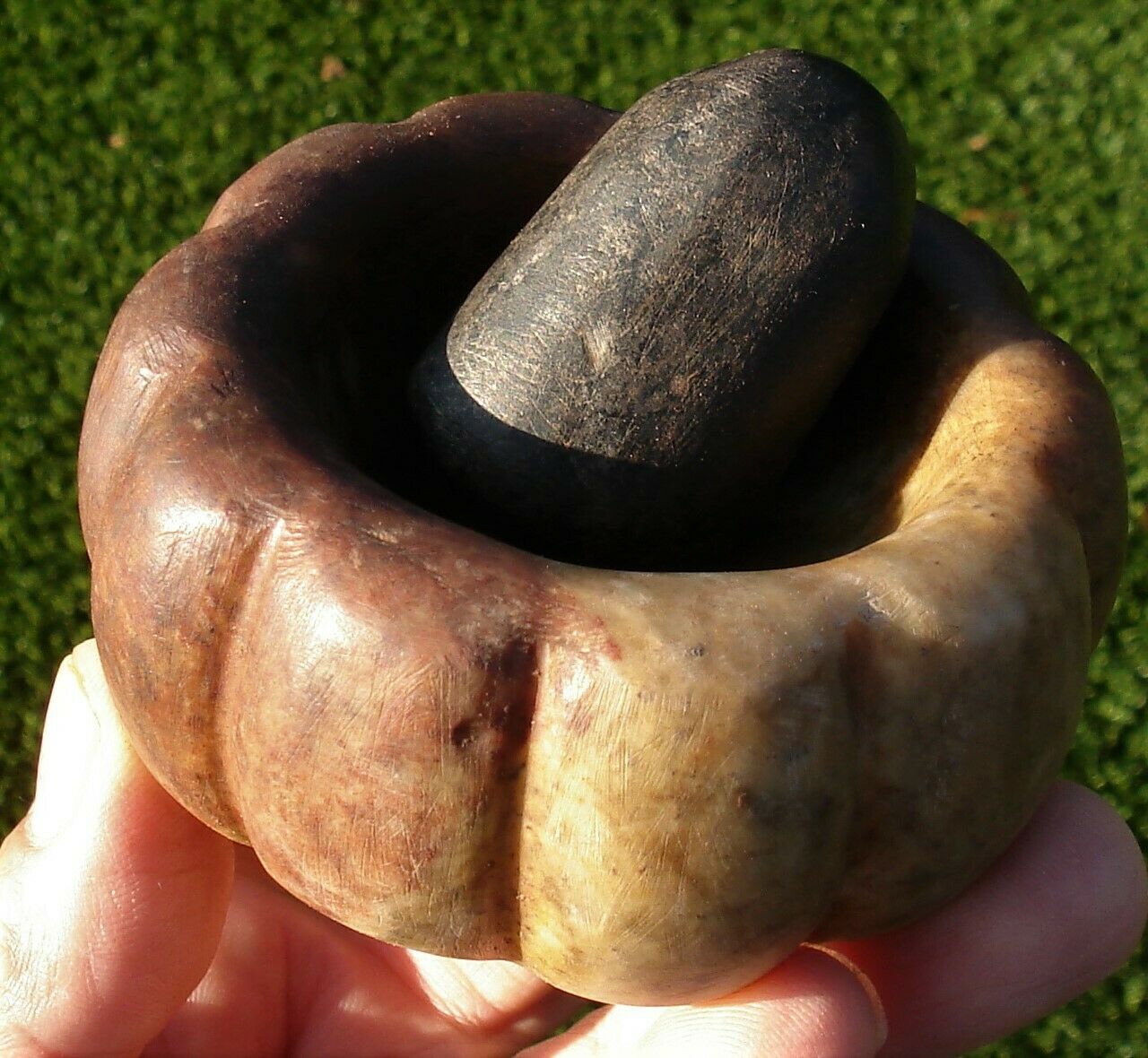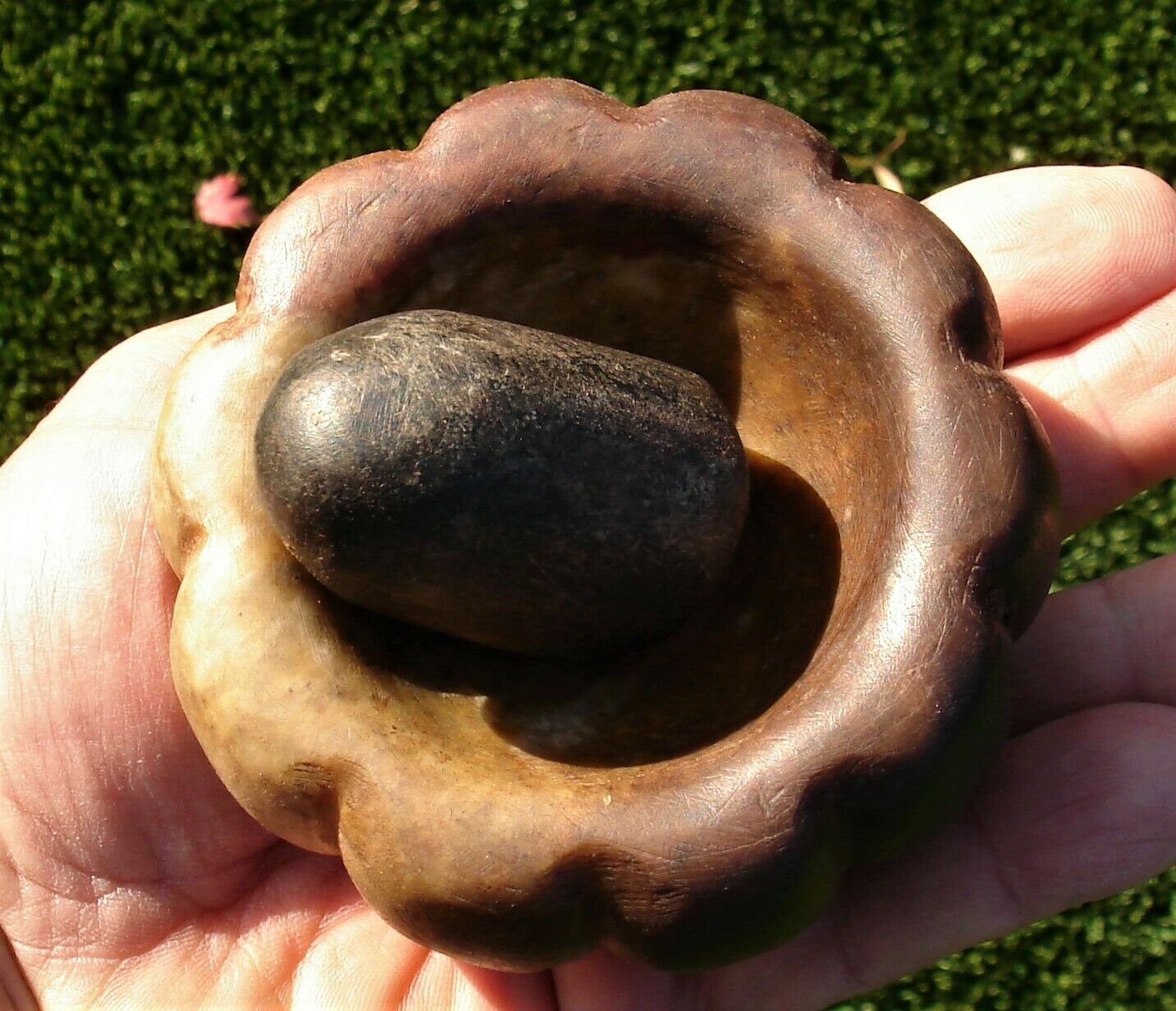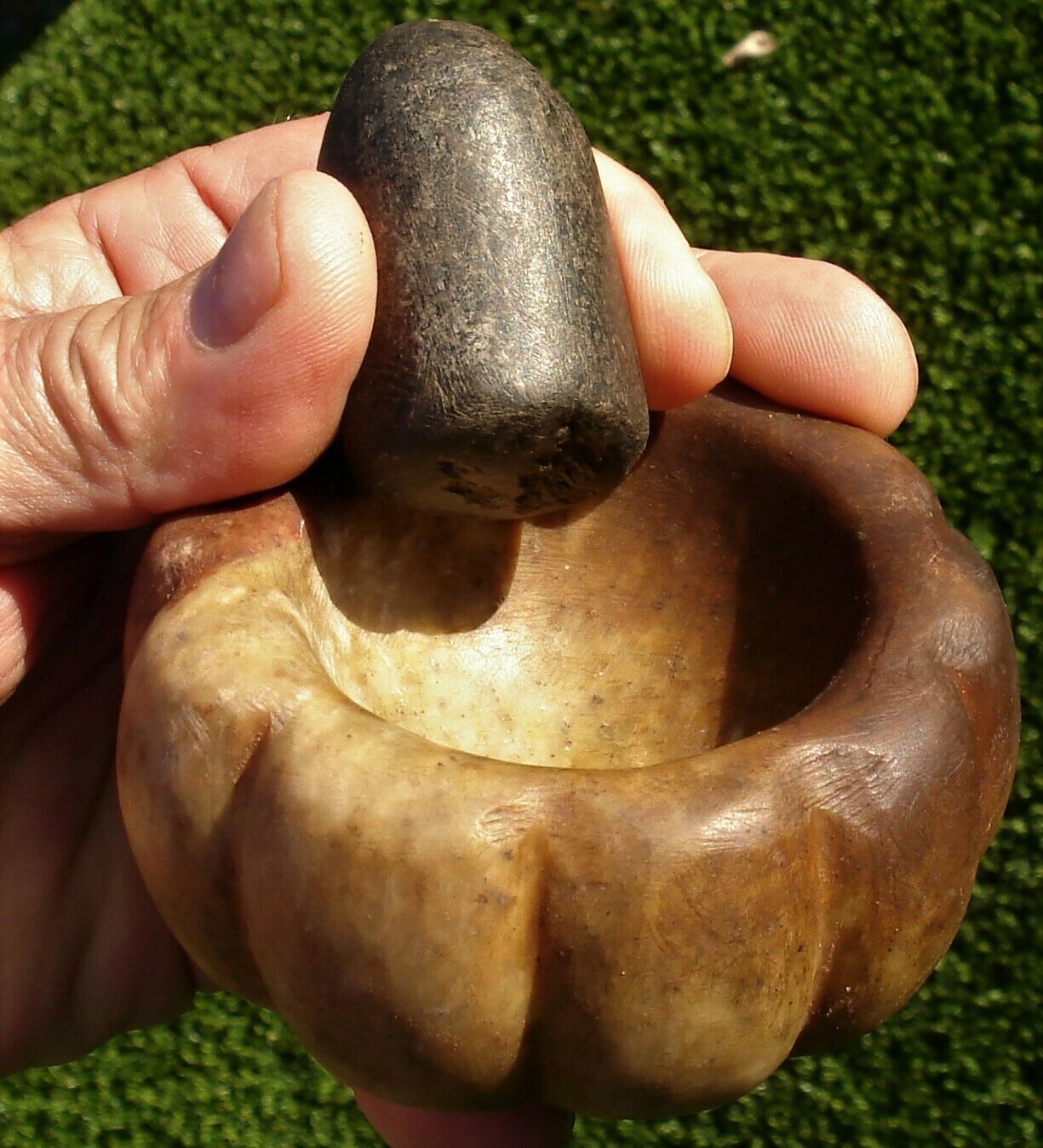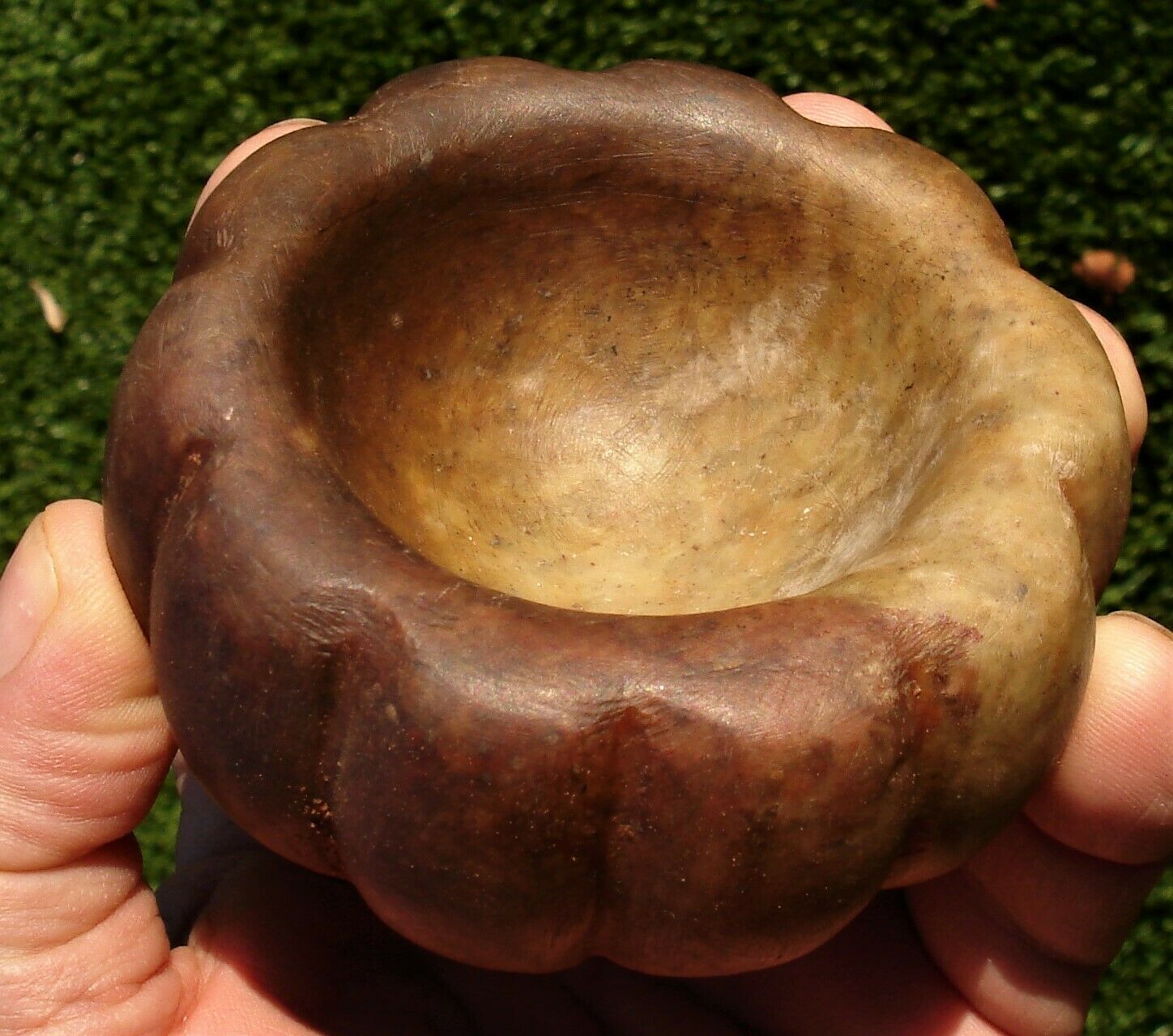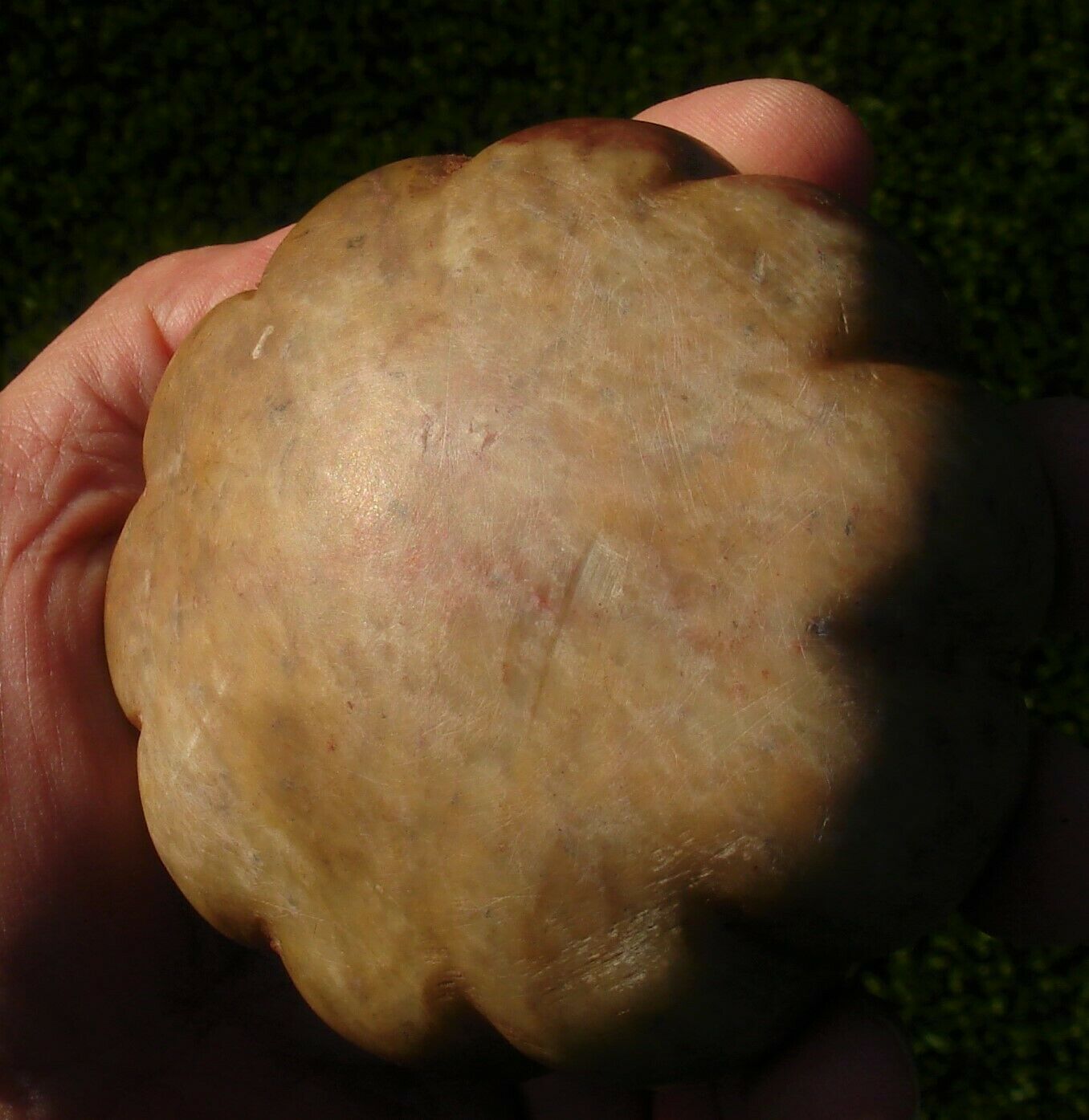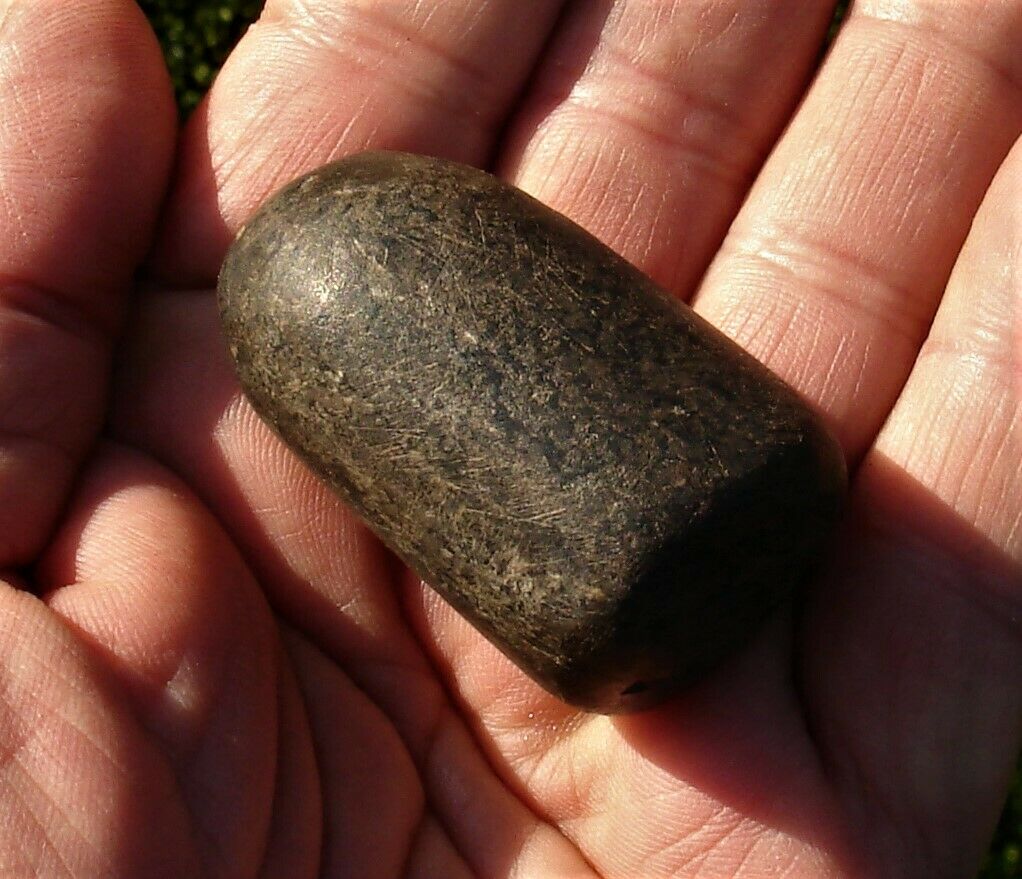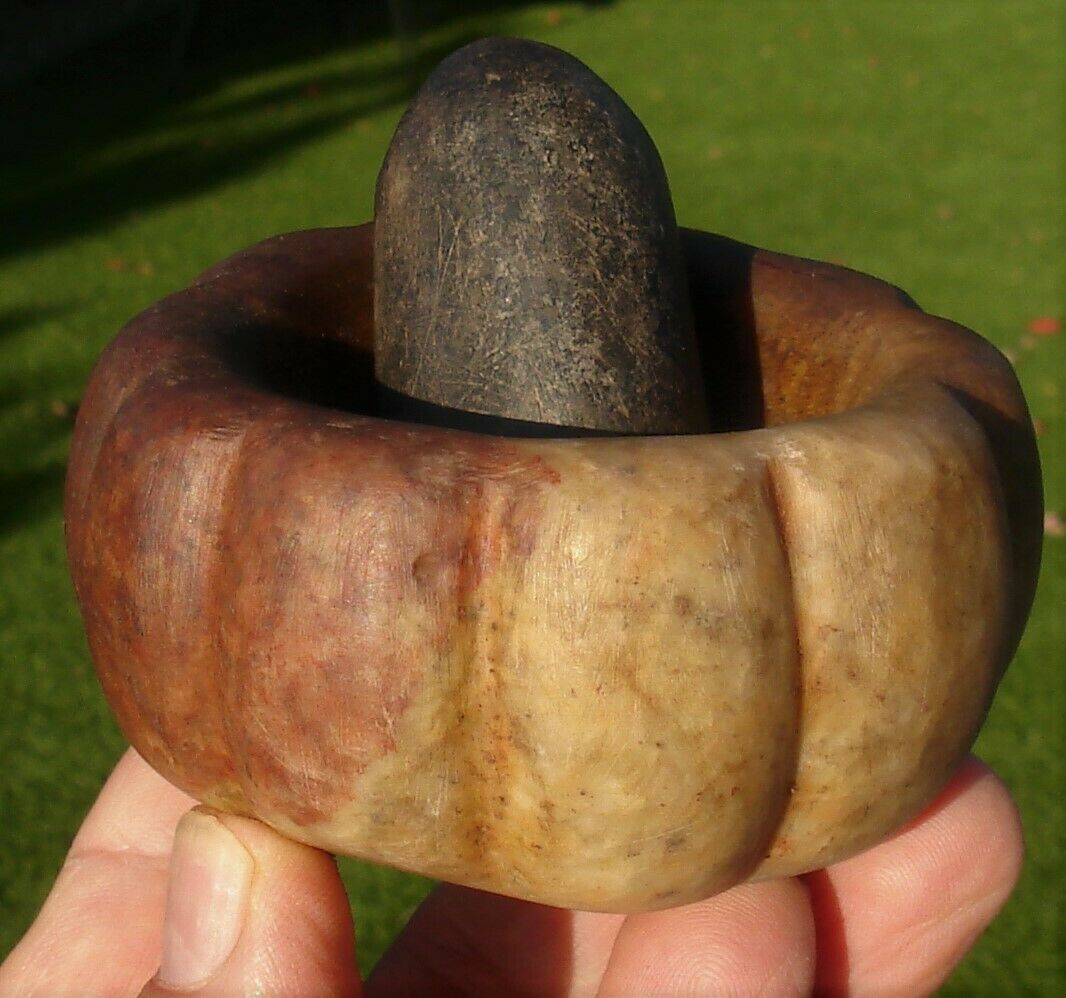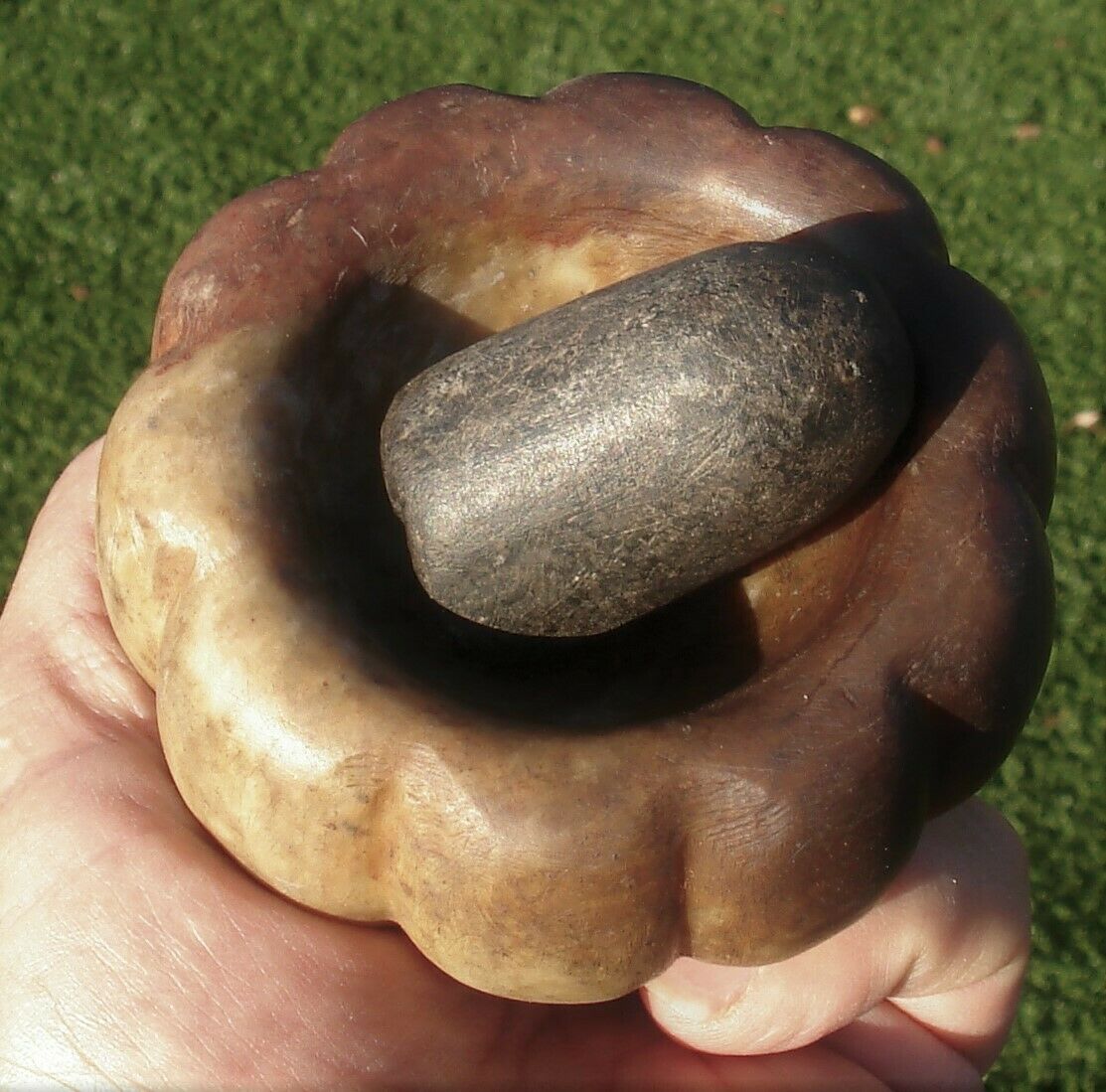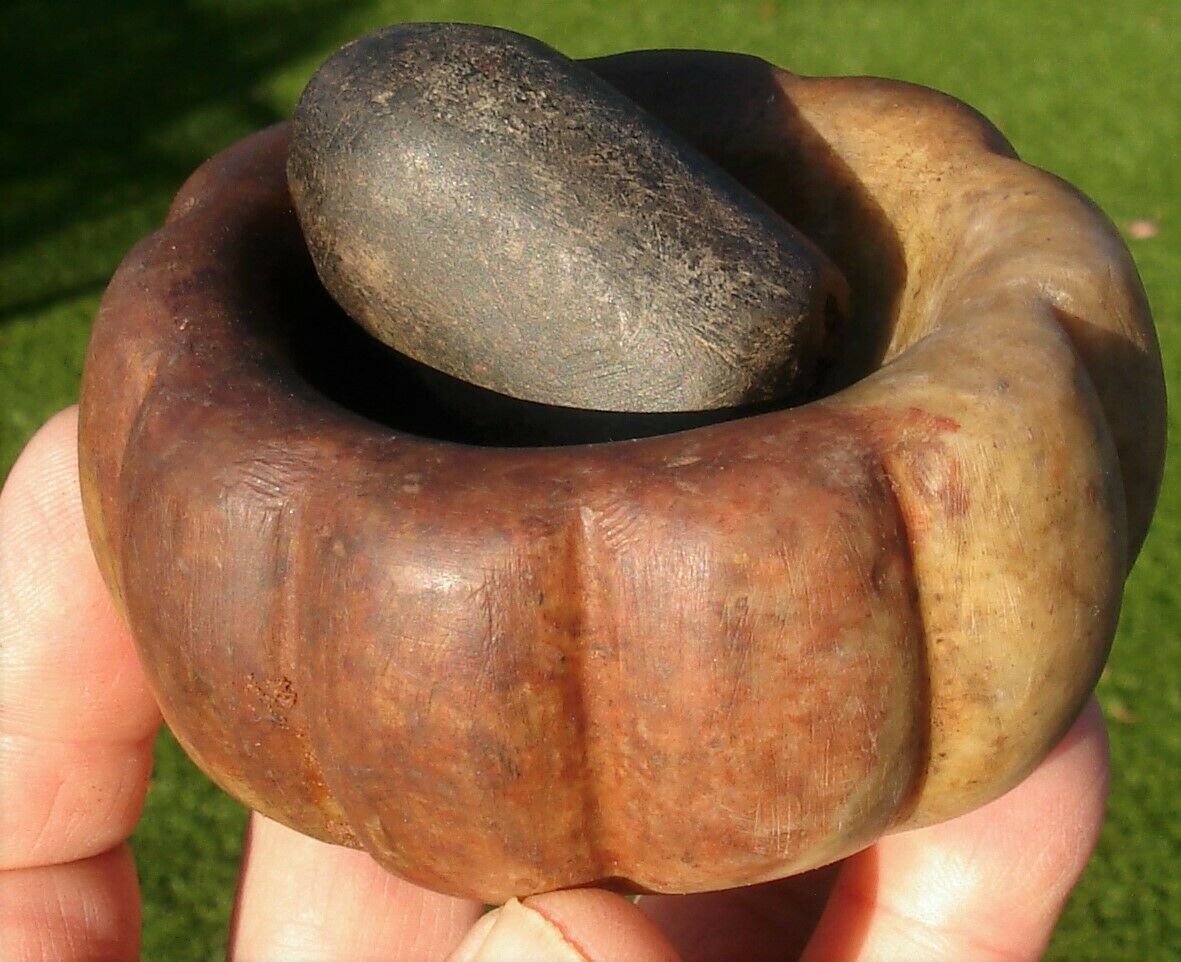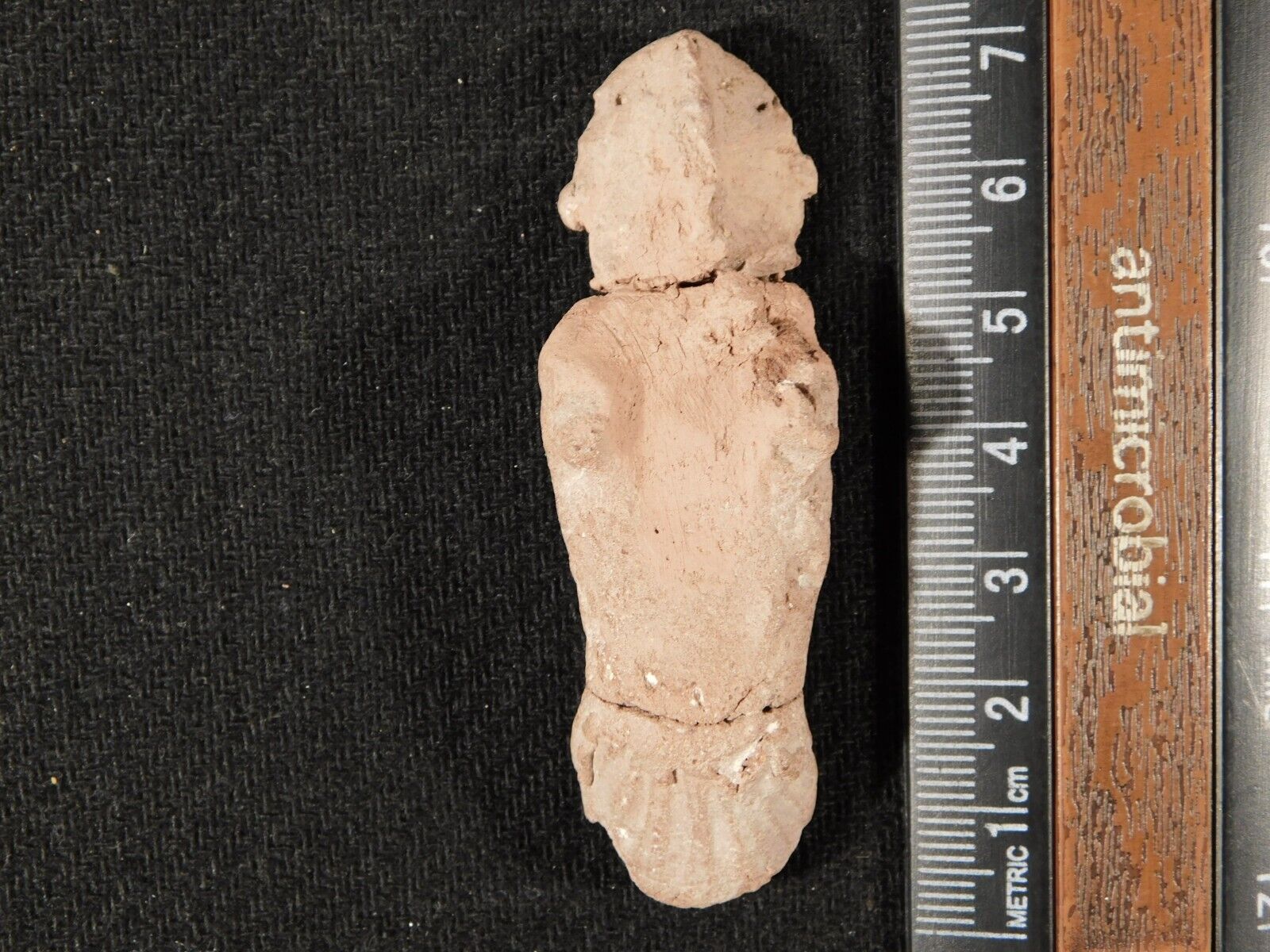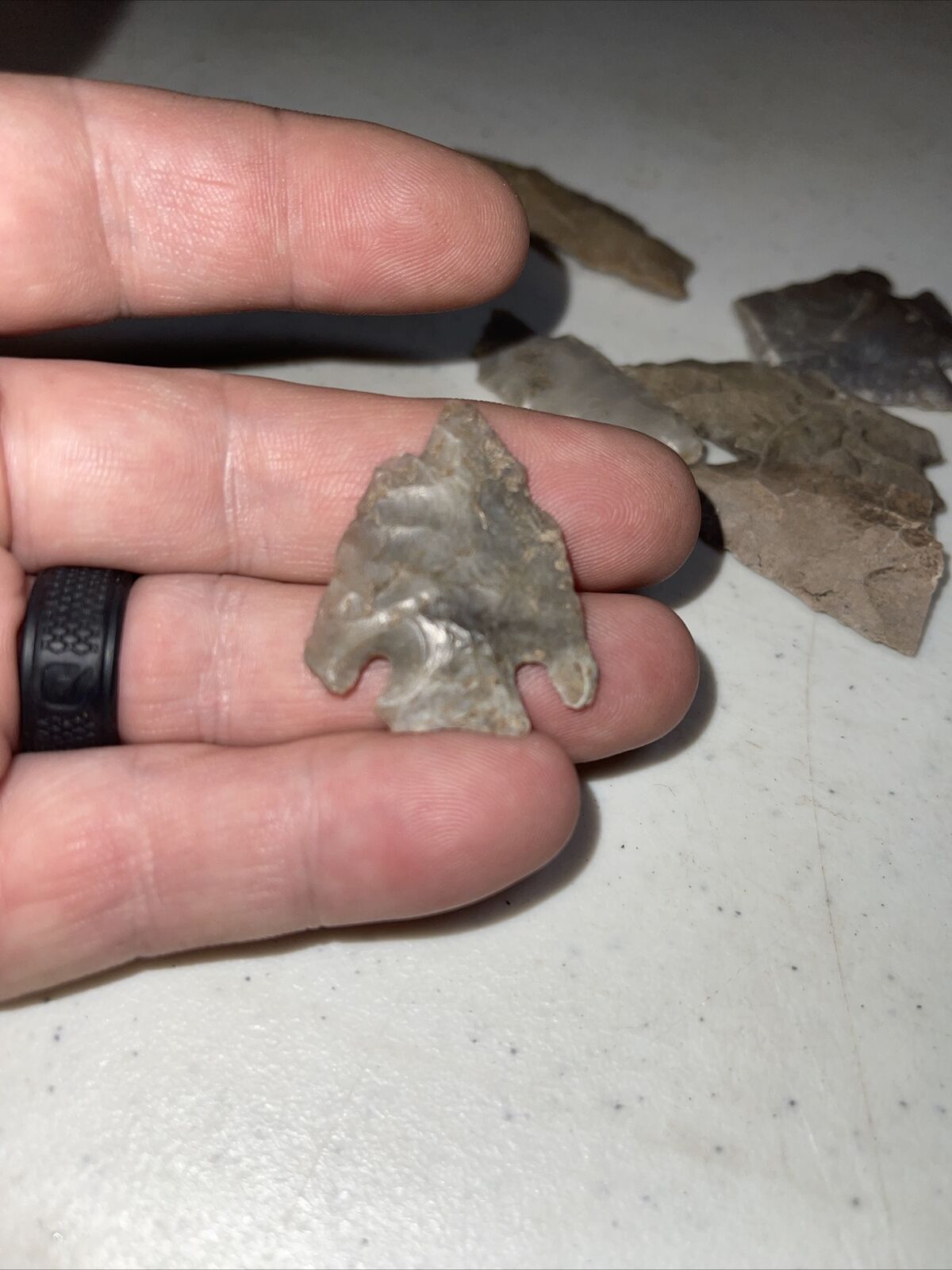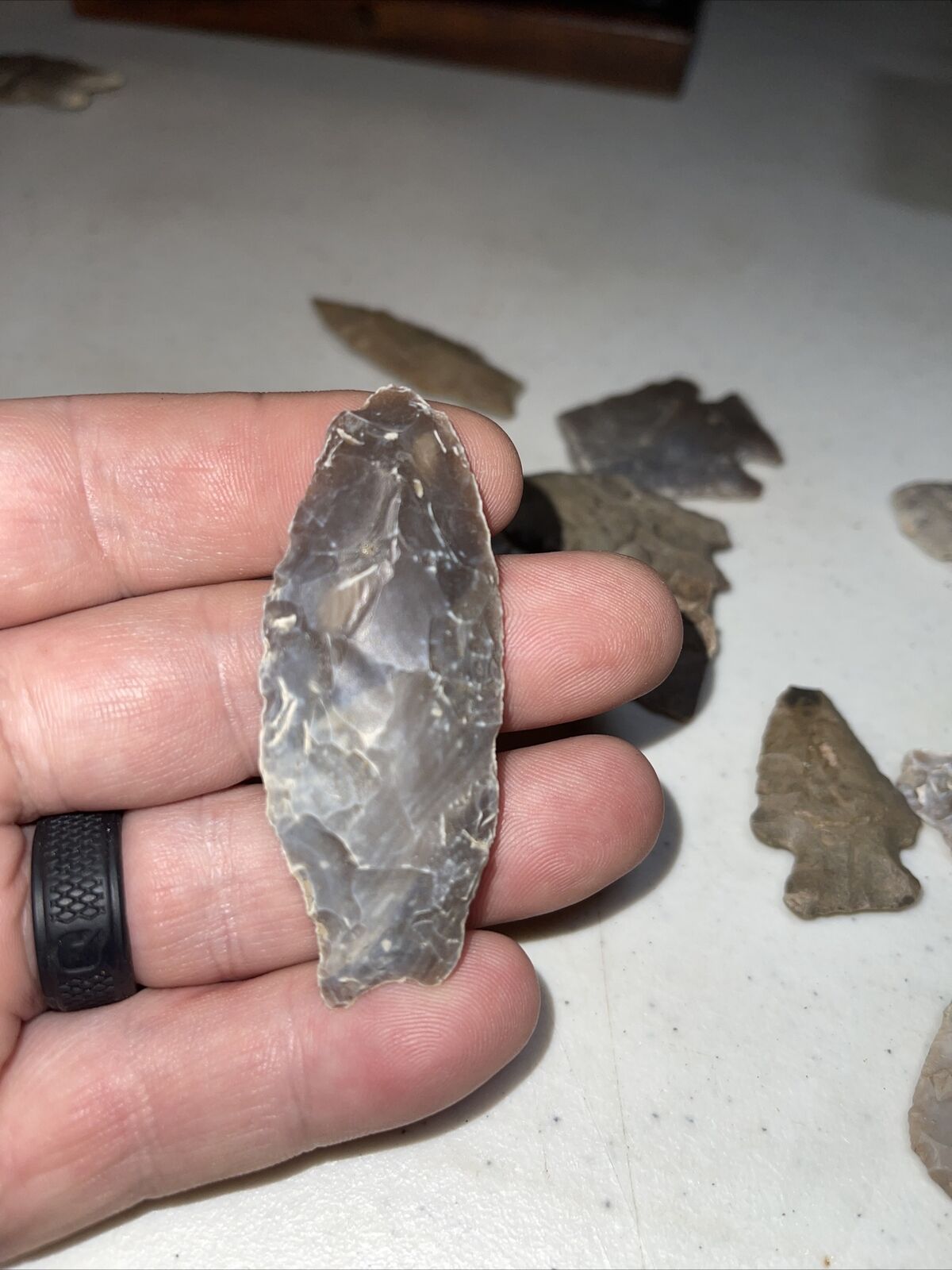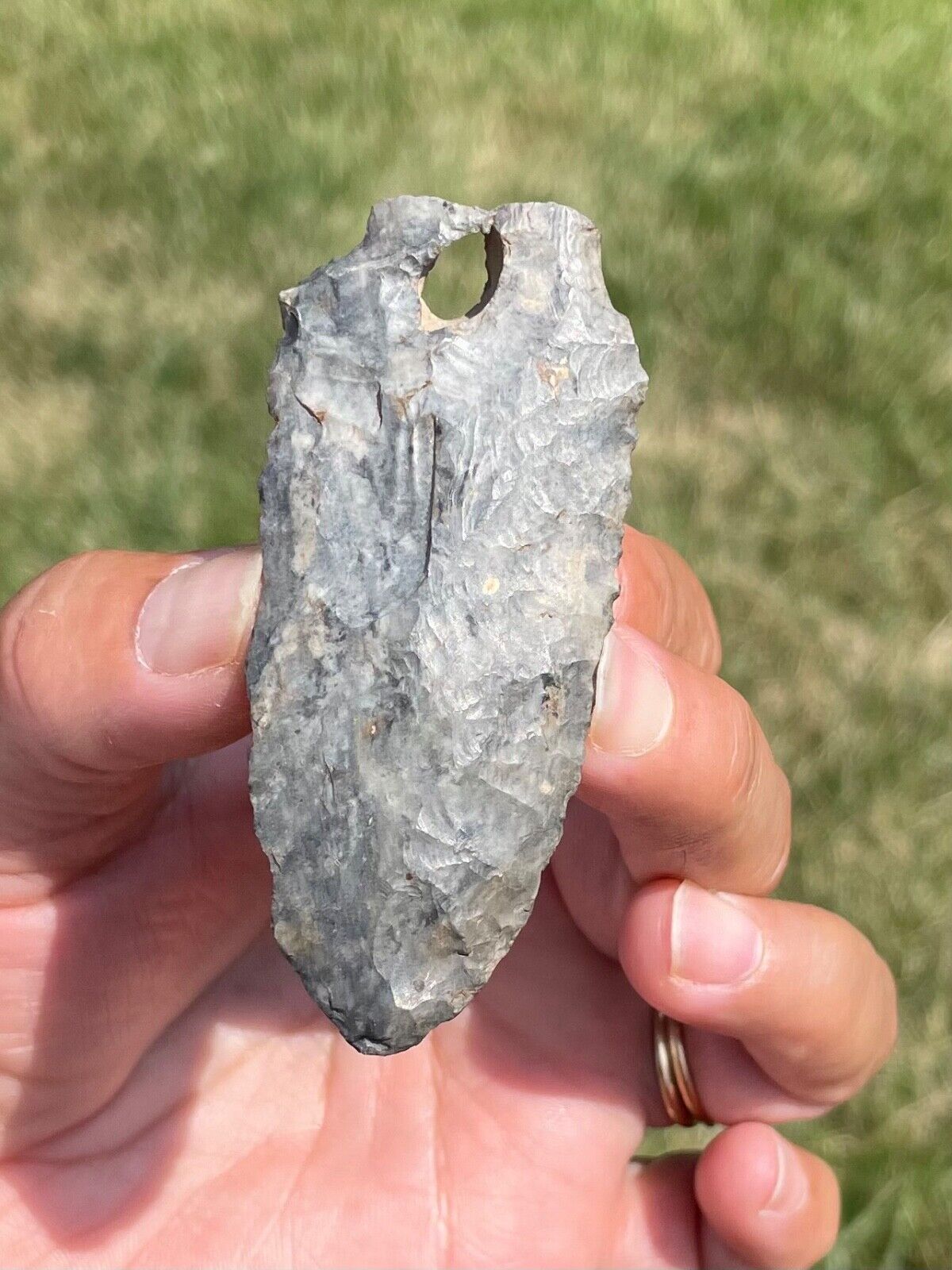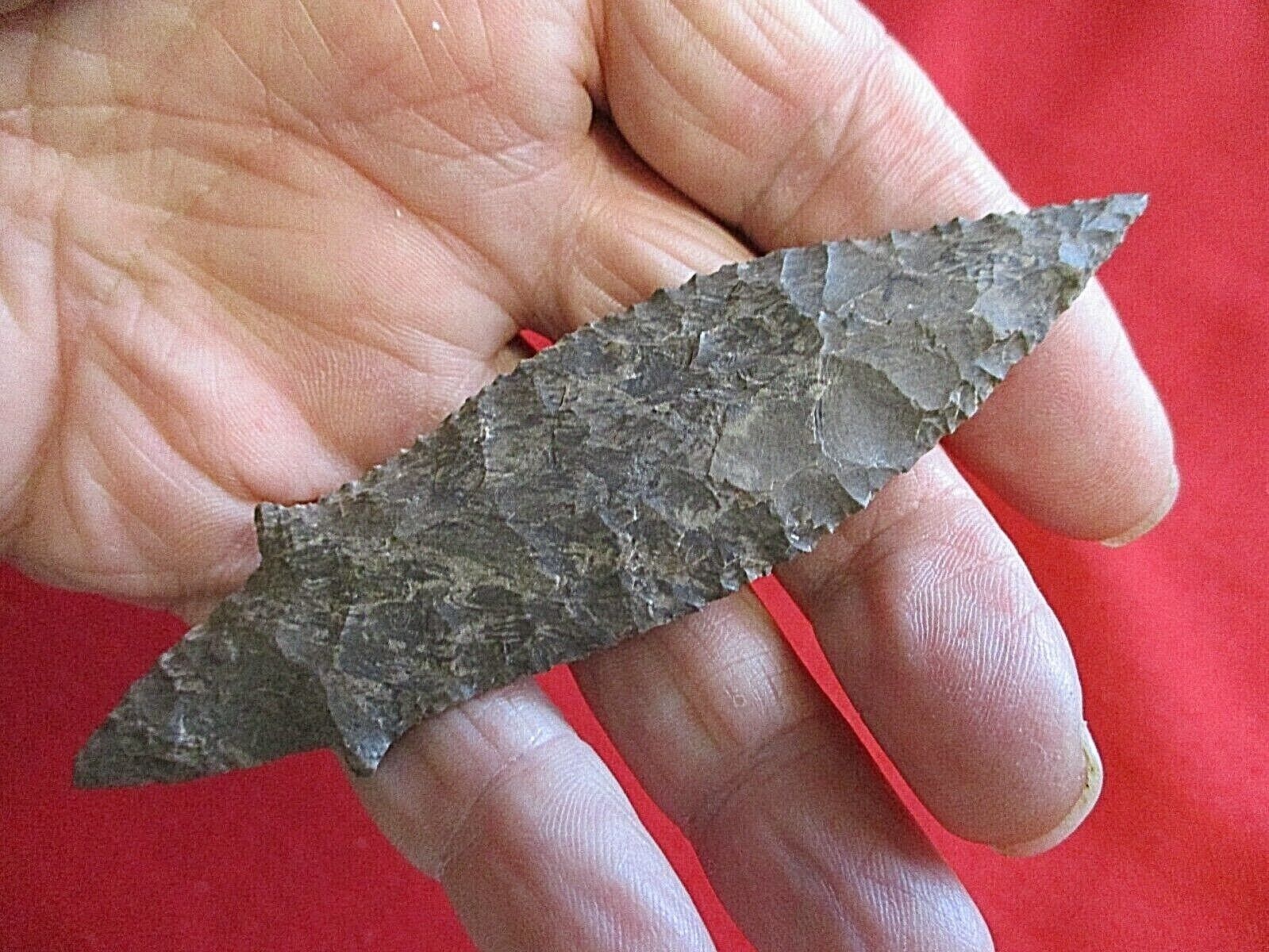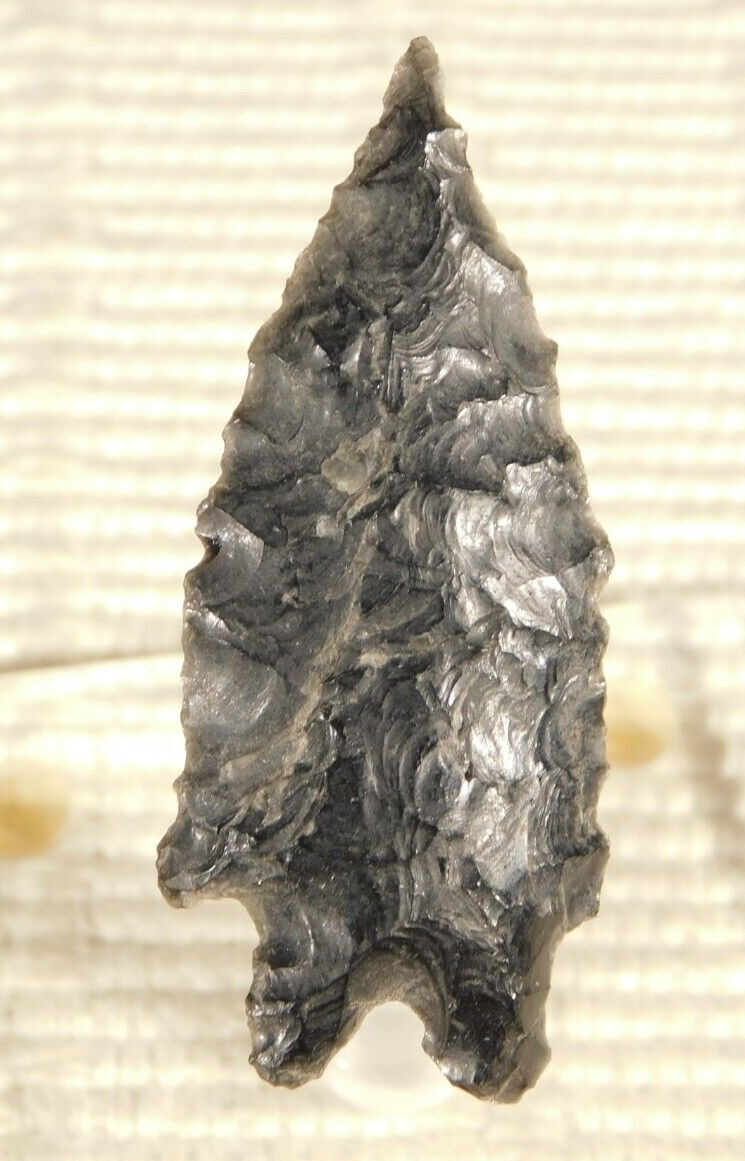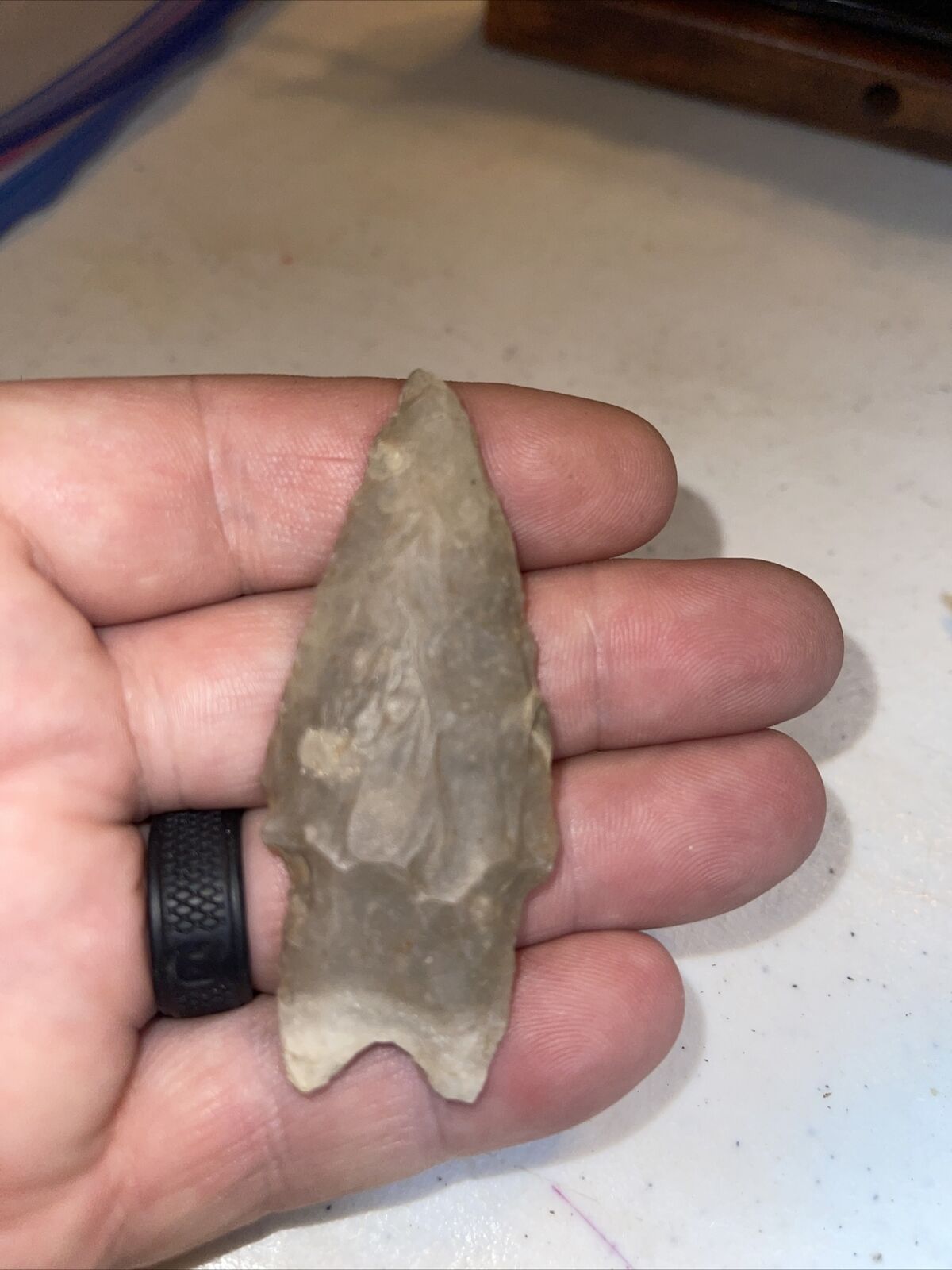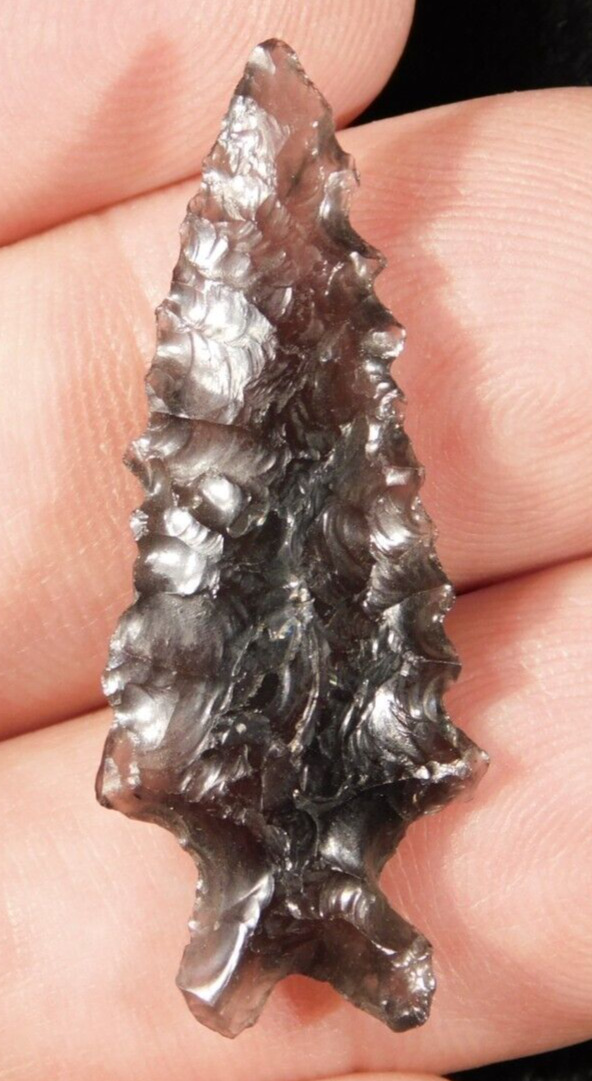-40%
MORTAR, RIBBED STONE & PESTLE, PACIFIC NORTHWEST, COLUMBIA RIVER, OREGON
$ 157.34
- Description
- Size Guide
Description
MORTAR, RIBBED STONE & PESTLE, PACIFIC NORTHWEST, COLUMBIA RIVER, OREGONMortar
Outer-Diameter: 3 ¼”
Height: 1 ½”
Weight: 1 lb 2.7 oz
Pestle
Length: 1 ¾”
Base-Diameter: 1”
Weight: 2.6 oz
.
One of the more intriguing artifacts yet listed from the Pacific Northwest but one wrought with the insanities of damn building, mid-century American engineering: A rare, ribbed mortar and accompanying pestle.
On the northern bank of the Columbia River, around 85 miles upriver from Portland was a community of earth-building, ancient people. For years indigenous people trekked to this part of the river for the abundance of ocean-salmon.
For many years, explorers noticed evidence of burials and habitation sites along this stretch. People scoured the region on Sunday morning jaunts looking for what were then called “relics.”
Much later in the 1950s when news of a damn project swept through the region, more folk stuck their spades into the soil.
By the early 1960s, the Dalles Damn project was completed and vast stretches of the fertile land surrounding the Columbia River were underwater—including an early earthen mound that had a partial excavation prior to the inundation.
(Incidentally, in their effort to get going on the project, contractors apparently dynamited/blasted away many petroglyph boulders from the region.
And, to add to the insanity, a pre-damn salvage excavation allowed amateurs to help themselves to any “relics” they uncovered!)
Among several artifacts to survive the blasting/ water-cover was this odd, ribbed stone mortar and associated pestle.
The “ribbing” apparently is a homage to many of the similar-looking gourds originally found in the region.
The artifacts have
minor grooves/cuts throughout
. Remnant extraction marks are still visible within the mortar’s grind-hole.
Such a small-volume mortar may give indication as to its original purpose.
While too small for any major food grind, this hand-held, tiny mortar is frequently seen further south along Pacific Coastal sites. Near ancient CHUMASH occupation sites, these mortars were apparently used to grind various herbs for palliative and/or ceremonial purposes.
Remnant patina (pigment?) on mortar.
Perhaps that was the original function of this exquisite, ribbed mortar?
Minor grooves/cuts throughout; sand abrasion scratches noticeable on exterior “ribs”, bottom and pestle. Crush/grind swirl marks within.
